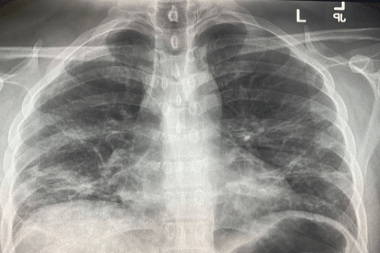Joshua Russell, MD, MSc, FACEP MD; Ana Echenique, MD, DABR; Steven R. Daugherty, PhD; and Michael Weinstock, MD Abstract Background/Objective A prior study of patients presenting to urgent care (UC) centers with COVID-191 showed that only a small proportion of these ambulatory patients demonstrated significant pathology on chest x-ray (CXR). In this secondary analysis of 636 ambulatory patients with confirmed COVID-19 from greater New York City (NYC), our primary objective was to determine whether the …
Read More








